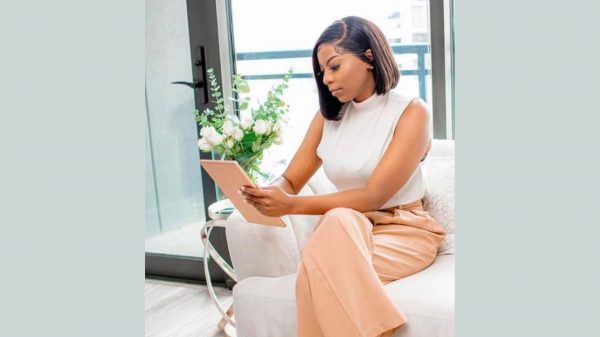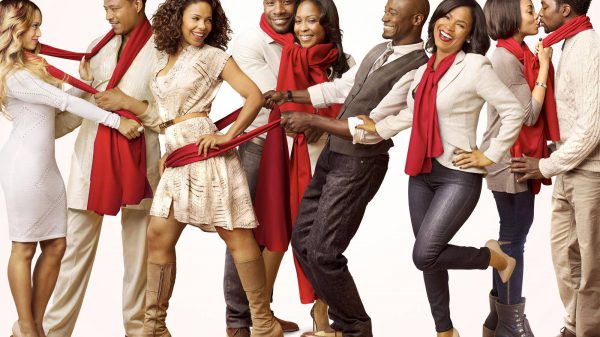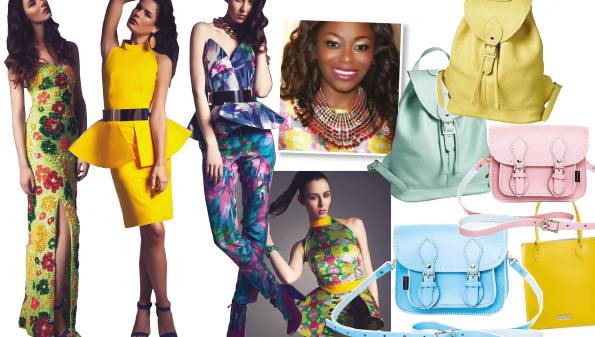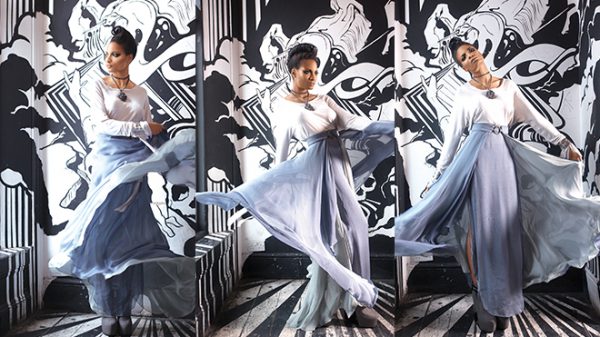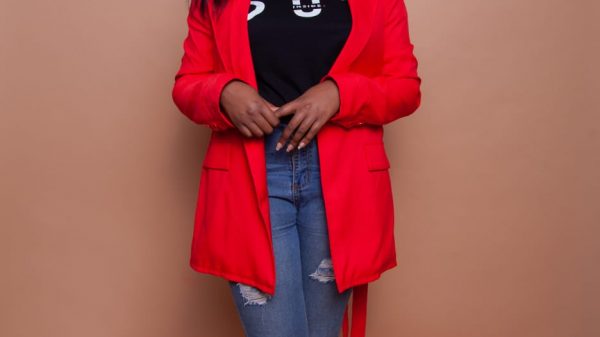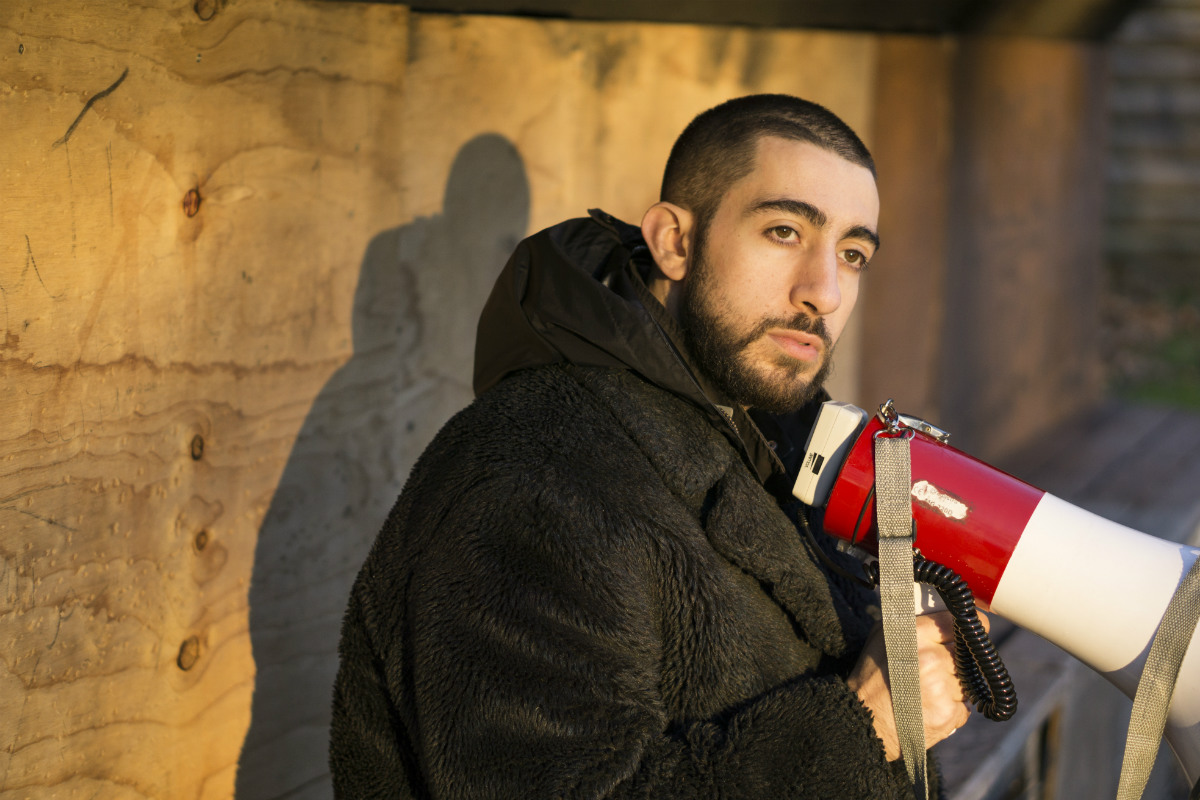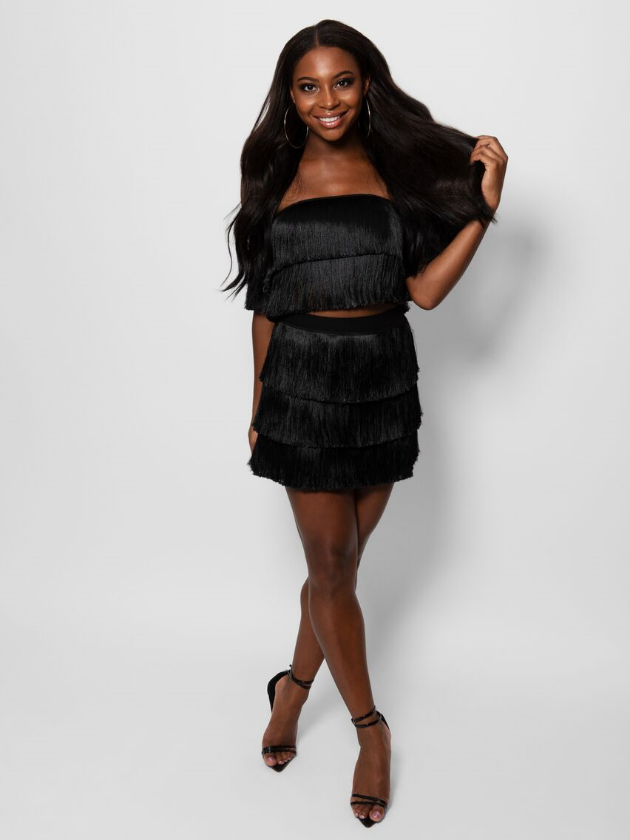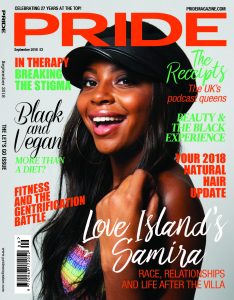After becoming a national talking topic on a number of occasions this year, Samira Mighty’s life has changed forever. But now that Love Island’s over, what comes next? Nicole Vassell finds out
What to do when you’re one of the most discussed women in the country?
This question is potentially one that Samira Mighty has asked herself many times over the last couple of months; for this summer, her life changed completely.
Up until June 2018, the 22-year-old from south-east London was living a completely different lifestyle, as a cast member of West End musical Dreamgirls. However, she’d gotten a call that very few will ever have the fortune of receiving; she’d been chosen to be a starting cast member in reality TV phenomenon, Love Island.
Since its re-launch in 2015, the ITV2 programme has accomplished the mammoth task of uniting the nation in the addictive group viewing of beautiful single people in a luxury Spanish villa, looking for romance with a side of fame. This year’s season, which ran from early June until late July, was the most successful year yet, with 3.7million of us tuning in to watch lovebirds Dani Dyer and Jack Fincham scoop the top prize of £50,000 ‒ and far more in deals to come over the next few months.
Because of this TV obsession, the public, myself included, might already think we know who Samira is ‒ cheerful, slightly goofy, and relentlessly friendly. And the same person greets me with a big, warm smile ‒ slightly flustered from poor weather, but immediately engaged and switched on, ready to talk about her amazing summer over bowls of spaghetti carbonara.
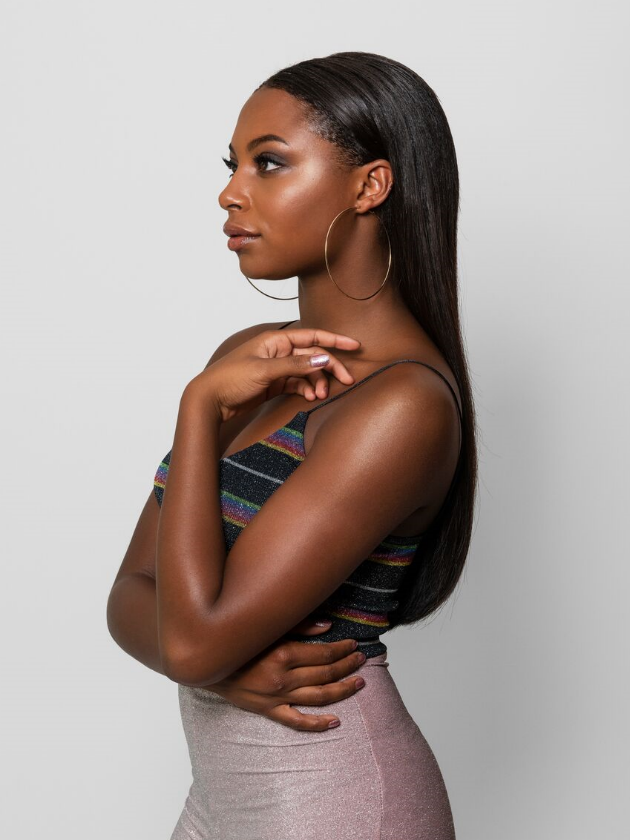
Samira Mighty: ‘Moving on in my romantic life, I’m gonna keep it private. No-one needs to know anything.’ Photo: Owen James Vincent
‘It’s crazy!’ Samira admits after I ask about how she’s adjusting to life outside of the villa. ‘I just got stopped over there! The guy was staring at me for ages. I go, “hi”, because they feel awkward.’ She’s dressed low-key, but fashionable in a plain black top, jeans and trainers, topped off with a cap that’s equal parts for style, utility (‘My hair is mashup!’ she exclaims ‒ though not visible to an outside eye) and also, a form of semi-disguise: ‘I’m catching the train and tube all the time, and I just wanna keep my head down.’
She’s in the process of learning how to balance normality with an undeniable new celebrity status. Life, for Samira, has gone to the extremes of not having having time to see many of her loved ones since coming back, to acquaintances being ‘too beggy’, and trying to ride the wave of her popularity. But of course, the benefits are obvious: free clothes and shoes, invitations to film premieres, and opportunities to speak on panels involving women’s empowerment. It’s all going swimmingly ‒ but, with the knowledge of how black women have fared on reality TV in the past, it could’ve turned out much differently.
Samira was the only black female contestant of the entire Love Island 2018 series, and until Kaz Crossley (who is Thai and white) and Savanna Darnell (the mixed-race daughter of Trinidadian-American musician, Kid Creole) joined the cast in the middle of the run, she was the sole representation of women of colour. Out of a reported 85,000 applicants total, it’s highly doubtful that Samira was the only black woman to have tried out; and as a result, the show was heavily criticised for their lack of ethnic diversity. However, Samira is hesitant to address claims of racial bias, defending the decisions of the producers:
‘I didn’t know that I’d be the only one, the only woman of colour, but I did have an inkling. You have four or five girls to start, they’re not going to have someone who looks like me at the start; everyone’s going to be different, and we were,’ she reasoned. ‘I knew that I’d probably be the only one. But it didn’t bother me ‒ I was like: “Yeah, come on then. Good!”’
Because of this unique position, Samira found hoards of support in the black female viewing population; in essence, we saw ourselves in her, with plenty taking to social media night after night to defend her against trolls, co-sign her decisions and cheerlead her successes. And for a while, it also seemed as if a genuine romantic connection was something that Samira would go without, as the weeks passed without her finding a potential suitor. Even so, she kept on smiling. Though Samira may not view it in this way herself, this sense of ‘carrying on’ against the strains is one that many black women know intimately; an intentional sense of optimism, as a method of survival in an environment where you’re ‘the only one’.
But things seemed to turn a corner when she coupled up with student and rugby player Frankie Foster, also 22 – though, to start, he briefly set his sights on fellow contestant Megan Barton-Hanson. Upon being initially rejected by Frankie, we saw Samira have a sudden moment of unabashed vulnerability, where she let go of weeks of slights, and cried to her housemates about her frustrations in not being picked as any of the male contestants’ first choice.
When that episode in particular was broadcast, black and brown women all over the country felt their hearts break on her behalf, and partly, for themselves. Despite her obvious beauty, it seemed as if Samira ‘just wasn’t anyone’s type’ in an environment wholly based on desirability and romance ‒ for many, an all too familiar feeling.
‘When I saw that, I was like, “urgh, that’s not me”,’ she says, squirming slightly at the memory. Yet, she brushes her upset off as being an example of the same insecurity that anyone else would have: ‘When else are you going to be surrounded by the hottest people in the UK? Everyone felt that way sometimes, even Megan herself. Especially Megan.’
Nevertheless, lust prevailed, and Samira soon coupled up with Frankie. A key point in their relationship trajectory was when they were chosen to spend a night in The Hideaway ‒ a secluded room away from the rest of the communal sleeping quarters, where lovestruck new couples tend to consummate their affections in ‘private’ ‒ or, at least spend some quality time away from the rest of the rest of their housemates. Controversially, this pivotal moment, which could have had the potential to sway viewers’ shaky perception of their relationship, wasn’t included in the nightly edit, causing some to accuse the show of fixing the show against Samira. (ITV has denied any such claim.)
Was this a racially-biased edit, like plenty on Twitter alleged? Samira is hesitant to say so:
‘I don’t know why they didn’t show it.’ A tense laugh. ‘It was a big thing in the villa ‒ we got the text, and people were like, “Frankie and Samira should go!”
‘Nothing really happened in there, to be honest ‒ you chat and then you go to sleep. Maybe we were boring, I don’t know.’
This wasn’t the only instance in which race came into question; at one point, a tabloid made some allegations of racial microaggressions occurring in moments that weren’t broadcasted to the public, with one ‘source’ claiming that contestant Georgia Steel asked Samira inappropriate questions about her hair. However, Samira denies any memory of this happening, while asserting her belief that Georgia is categorically not racist: ‘In fact, all her ex-boyfriends are black; she’s definitely not racist.’
Racial debates aside, viewers failed to vote for Frankie to stay in the house, and he was booted, not long after the public weren’t shown their night together. His elimination left Samira distraught, and two days after his departure, she followed her heart out of the villa to be with him; days later, he asked her to be his girlfriend on live TV.
The love story was unfolding, at last! But, of course, no celebrity story is without its drama in the fourth act; at the time of our interview, merely days had passed since the emergence of allegations of Frankie being unfaithful to Samira. (This followed a previous leaked cheating rumour that they’d moved past.)
When I ask about the current state of their relationship as a result of this supposed indiscretion, Samira’s barriers come up in an instant ‒ apologetically, but firmly, she refuses to expand on the state of their relationship any further.
‘It’s mine and his thing; whatever me and him choose to do, it’s gonna be our thing; I don’t wanna send out the wrong message.’
However they are now, the situation has thrown into play something that’s most probably the biggest sacrifice that comes with sharing a part of yourself on reality TV; the fact that, whether she likes it or not, there are pockets of the nation who’ll be invested in her personal life forever more. How does it feel, I ask, to know that it might be a very long time before strangers stop paying attention to your love life?
A pause. ‘It’s long.’ Another short laugh. ‘It’s annoying, and it’s hard having a relationship in the media; it’s not normal. But for now, moving on, in my daily and romantic life, I’m gonna keep it private. No-one needs to know anything. Obviously if you see things, you see things ‒ but no-one needs to know. The person that I’m with… is only with me, y’know?’
The reality star, access all areas version of Samira is no more. In her place sits a woman set on capitalising on this unique, yet oddly familiar life shift, and it becomes clear that this sense of perseverance has been with her all her life. The daughter of a dance teacher, Samira has been performing for as long as she can remember; she lists early inspirations being the likes of ‘Hannah Montana, the Jonas Brothers, The Cheetah Girls ‒ all of that stuff!’ And it was this vision of fun, glitzy teen stardom that propelled her further into performing arts school, musical theatre college, and snagging an agent and a part in the 2016 Beauty and the Beast film, in the place of completing her final year of study.
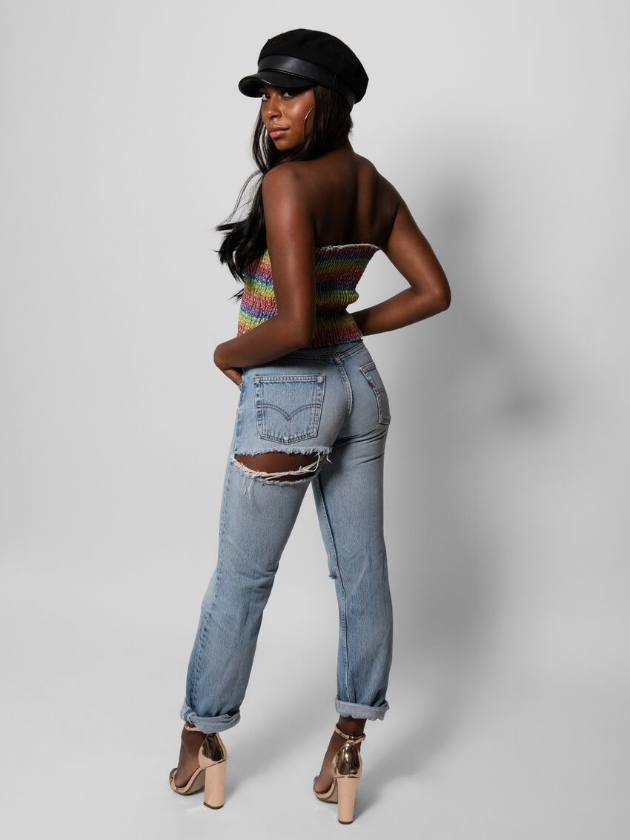
Samira Mighty: ‘I just felt like I needed to be doing something where people knew who I was.’ Photo: Owen James Vincent
‘I always wanted to be something, and I knew that I always would be,’ she tells me with an excited look in her eyes. ‘I don’t know what it was, but it felt like I should be something ‒ not in a cocky way, but I could just feel it. It could be just on any stage, down the road, but I just felt like I needed to be doing something where people knew who I was.’
Part of this mission is done already. She’s adapted nicely to the job of ‘celebrity’ since coming back from her time on the Island: the world of sponsored social media posts, party appearances and endorsements suits her. But while thankful and appreciative of the perks she gets now, this influencer lifestyle is one that, deep down, she’s ultimately disenchanted with ‒ her focus for the future lies elsewhere.
‘I write my music, and I want to be an artist ‒ and a presenter; and also keep up with doing fashion brands as well,’ she says. ‘I want to do a lot ‒ that’s part of why I went on Love Island, to branch out on the stuff I can do.’
Her sense of conviction is impossible not to admire; one-part sunny optimism, another part unshakeable ambition, Samira could convince anyone that she can achieve anything, all with a sprinkle of positivity. Though it does come across genuine, Samira’s wide grin seems like a coping mechanism of sorts ‒ and in a way, it is. When I ask how she de-stresses from this massive lifestyle change, she admits that she’s suffered with anxiety for a number of years. ‘I get that feeling in my stomach, and it’s horrible.
‘Coming out of the villa, I had anxiety; things in the media, I’ve had anxiety ‒ and I struggle to breathe at times. Sometimes I go to a place in my head when I’m like, “Come on, stop being stupid, look at your position, let’s go!” You have to talk yourself down, because I get really worked up and overthink everything.’
But with her determination to put a smiling face on for the world, Samira admits that she tends to hold things inside, out of a fear of burdening others with her problems. ‘I know it’s not the best thing for me to do, but I put others before me; I’ve gotta learn that sometimes, it’s gotta be me first.’
By the time we finish our respective meals, I’m fairly certain that people at surrounding tables have realised who she is; the waiter is noticeably brighter and more attentive since she looked at him straight on. ‘I’m getting used to it now,’ she shakes her head.
We pay, say goodbye, and she leaves ‒ wheeling a mini-suitcase for a quick brand event in Manchester, later that day. Though the smiling for the paparazzi, and the travel, and the headlines are exhausting, Samira is determined not to let this opportunity slip through her fingers. The celebrity world can be brutal; hot for one minute, not in the next, but she’s aiming to be a slow burner ‒ doing as much as she can, before honing in on her music and broadcasting dreams. It’s never an easy feat, to try to carve out a long-lasting career doing exactly what you love, but I can tell, she’s going to give it a mighty good try ‒ and I hope she succeeds. Wouldn’t you?
Shoot credits:
Photographer: Owen James Vincent
MUA: Gina Parr
Hair: Mika Dzuiba and Cory Rodriguez
Stylist: Lauraine Bailey
Image retouching: Sam Trenouth





